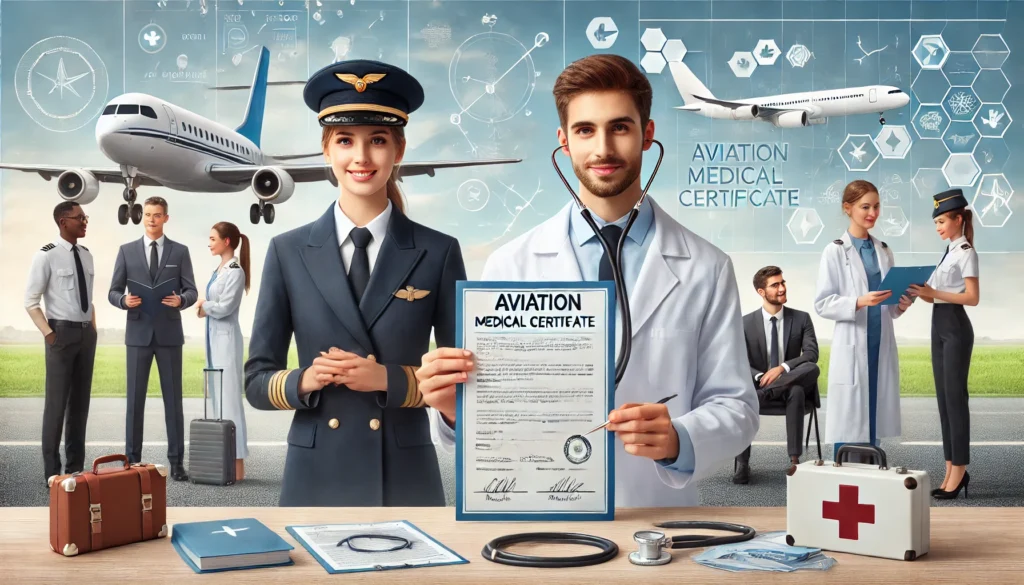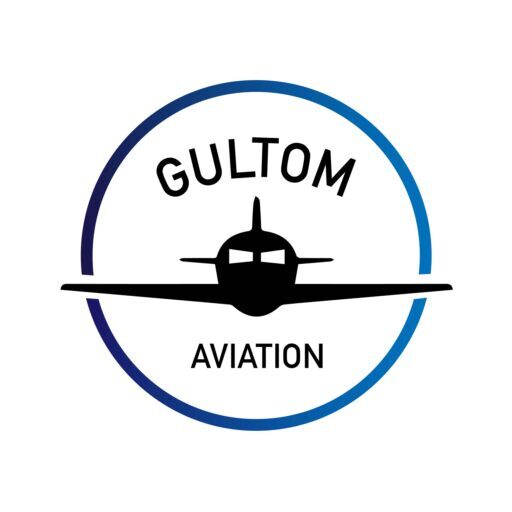
Aviation is a highly regulated industry, and ensuring the safety of pilots and passengers is paramount. One of the critical aspects of this safety is the aviation medical certificate. This guide will answer key questions about aviation medical certificates, including what they are, the types available, when you need one, how to obtain one, and who is exempt from needing a medical certificate.
What is a Medical Certificate?
A medical certificate in aviation is an official document issued by an authorized medical examiner that certifies a pilot’s physical and mental fitness to fly an aircraft. This certificate is essential to ensure that pilots meet the health standards necessary to operate aircraft safely, mitigating risks related to medical conditions that could impair their ability to fly. Getting a medical certificate is one of the first steps in becoming a pilot.
What Are the Types of Medical Certificates?
There are three primary types of aviation medical certificates, each with different validity periods and requirements based on the pilot’s age and type of operation:
First-Class Medical Certificate
- Under Age 40: Valid for 12 months for airline transport pilot (ATP) certificate for pilot-in-command or second-in-command in operations requiring three or more pilots.
- Age 40 or Older: Valid for 6 months for the same ATP privileges and for pilot flight crew members in part 121 operations.
- Any Age: Valid for 12 months for commercial pilot certificate (except with balloon rating for flight training), flight engineer certificate, or air traffic control tower operator certificate.
- Recreational/Private/Sport Pilot Under Age 40: Valid for 60 months.
- Recreational/Private/Sport Pilot Age 40 or Older: Valid for 24 months.
Second-Class Medical Certificate
- Any Age: Valid for 12 months for ATP second-in-command (except specified operations), commercial pilot (except with balloon rating for flight training), flight engineer, or air traffic control tower operator.
- Recreational/Private/Sport Pilot Under Age 40: Valid for 60 months.
- Recreational/Private/Sport Pilot Age 40 or Older: Valid for 24 months.
Third-Class Medical Certificate
- Under Age 40: Valid for 60 months for recreational, private, student, and sport pilot certificates (not using a U.S. driver’s license as medical qualification).
- Age 40 or Older: Valid for 24 months for the same certificates.
When Do You Need a Medical Certificate?
You need a medical certificate when you are:
- Applying for or holding an ATP certificate for pilot-in-command or second-in-command in part 121 operations.
- Operating as a commercial pilot (except with a balloon rating for flight training).
- Holding a flight engineer certificate or air traffic control tower operator certificate.
- Acting as a pilot for recreational, private, or sport pilot activities (unless using a U.S. driver’s license for sport pilot medical qualification).
How Do You Get a Medical Certificate?
Step 1: Meet Basic Requirements
- Ensure you meet the age and health standards.
Step 2: Schedule an Exam
- Make an appointment with an FAA-authorized aviation medical examiner (AME).
Step 3: Undergo Medical Examination
- The examination will include a comprehensive check of your vision, hearing, cardiovascular health, mental health, and overall physical condition.
Step 4: Receive Certification
- If you meet all health standards, the AME will issue your medical certificate.
Who Doesn’t Need a Medical Certificate?
Certain operations and pilots are exempt from requiring a medical certificate:
- Student Pilots: Seeking a sport pilot certificate with glider or balloon privileges.
- Pilots: Exercising privileges with glider or balloon ratings.
- Flight Instructors: With sport pilot rating in glider or balloon, or not acting as pilot in command.
- Ground Instructors: Only providing ground instruction.
- Examiners/Check Airmen: Conducting tests in gliders, balloons, simulators, or training devices.
- Military Pilots: With current medical examination for domestic flights not requiring higher than a third-class medical certificate.
- Special Medical Flights: Authorized under part 67.
Obtaining and maintaining the appropriate aviation medical certificate is crucial for any pilot. Understanding the different types of certificates, their requirements, and the process to acquire one ensures you remain compliant and safe to operate an aircraft. While not everyone needs a medical certificate, knowing the exemptions helps you navigate your aviation career or hobby effectively.
FAQs
What is an aviation medical certificate?
- An official document certifying a pilot’s health fitness for flying, issued by an authorized medical examiner.
What are the types of aviation medical certificates?
- First-class, second-class, and third-class medical certificates.
When do I need an aviation medical certificate?
- For ATP, commercial, and various pilot certificates, depending on the type of operation and age.
How do I obtain an aviation medical certificate?
- Schedule an exam with an FAA-authorized medical examiner, undergo the examination, and receive certification if you meet health standards.
Who doesn’t need an aviation medical certificate?
- Pilots with glider or balloon ratings, ground instructors, certain flight instructors, military pilots for domestic flights, and others specified by FAA regulations.

